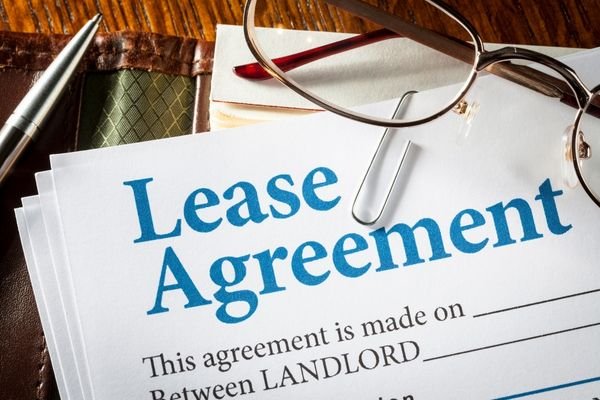Aquisitions and Disposals
Our commercial property acquisitions and disposals solicitors provide professional advice to investors and owner-occupied businesses. We handle the complicated process of sales and purchases, protecting commercial interests and minimizing risks.
We’ll advise on every aspect of acquisitions and disposals, and we’ll do it in an efficient and professional manner, ensuring deals are completed smoothly and successfully. We’ll be in touch with you throughout, updating you on our progress along the way.
arrow_back Back to Commercial Property
Why it’s important to use experienced commercial property solicitors
Using a commercial property solicitor really is essential when dealing with commercial property transactions. We can provide you with expert advice on the legal requirements and procedures involved, and we’ll ensure that you understand everything before we progress - from due diligence to document negotiations through to completion itself.
Buying or selling commercial property can often be more complex than dealing with residential property. There are a range of legal issues that need to be considered, such as title matters, environmental regulations, planning permissions, and occupational leases and licences. This is where our expertise comes in - we have the knowledge and experience to navigate the legal complexities of commercial property transactions, ensuring that our clients' interests are protected throughout the process.
Why Nash & Co Solicitors?
At Nash & Co Solicitors, we have a dedicated team of specialist lawyers who have a wealth of experience in handling commercial property acquisitions and disposals. Our focus is on providing practical and commercial advice that is tailored to each individual client's needs, ensuring that the transaction runs smoothly and efficiently.
We pride ourselves on our strong relationships with key stakeholders, our extensive experience in the field, and our commitment to delivering the very best standards of client service.
call Speak to a friendly Commercial Property Solicitor on 01752 827013
We’ll support you throughout the entire process
We understand that buying or selling commercial property can be a daunting task, which is why we’ll support you throughout the process of buying or selling property. Our team will work with you to fully understand your requirements and provide practical and commercial advice at every stage. We will prepare all the legal documentation that you need, keeping you informed and updated throughout the process.
We’re especially proud of our reputation for exceptional client service that we have built at Nash & Co Solicitors. Many of our clients return to us time and again, as they value the service and help that we offer. We are committed to maintaining our high standards of customer service and legal expertise. Learn more about the team.
Frequently asked questions
In this comprehensive video series, our experienced commercial property solicitors will address a wide range of topics and questions that commonly arise in commercial property ventures. We understand that commercial real estate can be complex and nuanced, so we've curated this series to provide you with practical information and valuable insights.
-
In the UK, the process for acquiring an investment property typically involves the following steps:
Determine Your Investment Strategy: The first step is to determine your investment strategy, including your budget, desired location, property type, and expected return on investment. This will help you to focus your search and identify suitable properties.
Find a Property: Once you have identified your investment criteria, you can start searching for a suitable property. This can be done through estate agents, property portals, auctions, or direct contact with property owners.
Conduct Due Diligence: Before making an offer on a property, it's important to conduct due diligence. This includes obtaining a survey, checking the property's planning and building regulation status, and reviewing any relevant legal documents, such as leases or title deeds.
Make an Offer: If you're satisfied with the due diligence, you can make an offer on the property. The offer will typically be made through the estate agent or directly to the seller. If the offer is accepted, you will need to instruct a solicitor to handle the legal aspects of the transaction.
Exchange Contracts: Once the legal aspects have been completed and both parties are satisfied with the terms, contracts will be exchanged. At this point, a deposit (usually 10% of the purchase price) will be paid, and the completion date will be set.
Complete the Purchase: On the completion date, the balance of the purchase price will be paid, and ownership of the property will be transferred to the buyer.
It's important to note that the above process is a general guide and may vary depending on the specific circumstances of the property and the transaction. Additionally, it's highly recommended to seek the advice of a professional, such as a solicitor or a property investment specialist, to guide you through the process and ensure that your interests are protected.
-
In the UK, due diligence is a crucial part of the process when acquiring or investing in commercial property. Due diligence refers to the process of investigating and assessing the property to identify any potential risks or issues that may impact the investment or transaction.
The due diligence process typically involves reviewing a range of documents and information related to the property, such as:
Legal Documents: This includes reviewing the property title, lease agreements, planning permissions, building regulations, and any other relevant legal documents.
Property Survey: A property survey is conducted to assess the condition of the property, identify any defects or issues, and estimate the cost of repairs or maintenance.
Environmental Reports: An environmental report is conducted to assess any potential environmental risks associated with the property, such as contamination or pollution.
Financial Information: This includes reviewing the property's financial performance, such as rental income, expenses, and any outstanding debts or liabilities.
Market Analysis: A market analysis is conducted to assess the current and future market conditions, demand for the property, and potential growth opportunities.
The purpose of due diligence is to identify any potential risks or issues associated with the property, and to ensure that the investment or transaction is sound and aligned with the buyer's objectives. It helps to protect the buyer's interests, mitigate risks, and ensure that they have a complete understanding of the property's condition and potential.
It's important to conduct due diligence with the assistance of a professional, such as a solicitor or a property investment specialist, to ensure that all aspects of the property are thoroughly assessed and evaluated.
-
When acquiring commercial property in the UK, a number of searches need to be carried out to ensure that there are no potential issues or liabilities associated with the property. These searches typically include:
Local Authority Search: This search provides information on planning applications and approvals, building control regulations, highways, and any other relevant information that the local authority holds.
Environmental Search: This search provides information on any potential environmental issues associated with the property, such as contamination or flood risks.
Drainage and Water Search: This search provides information on the location of public sewers and water supply, and any other relevant information related to drainage and water supply.
Mining Search: This search provides information on any past, present, or future mining activity that may impact the property.
Chancel Repair Liability Search: This search provides information on whether the property is subject to chancel repair liability, which is a legal obligation for property owners to contribute to the cost of repairs to the local church.
Land Registry Search: This search provides information on the property's title, ownership, and any registered charges or restrictions on the property.
Company Search: This search provides information on the company that owns the property, including its financial standing and any potential liabilities or legal issues.
These searches help to identify any potential issues or liabilities associated with the property, and ensure that the buyer has a complete understanding of the property's condition and potential risks. It's important to conduct these searches with the assistance of a professional, such as a solicitor or a property investment specialist, to ensure that all aspects of the property are thoroughly assessed and evaluated.
What our clients say
Related insights
Meet the Commercial Property team
Get in touch
Fill out the form below and let us know whether you would like us to call you, or email you. One of our Commercial Property team will be in touch as soon as we can.
If your enquiry is urgent then please call us on 01752 827073.
arrow_back Back to Commercial Property















